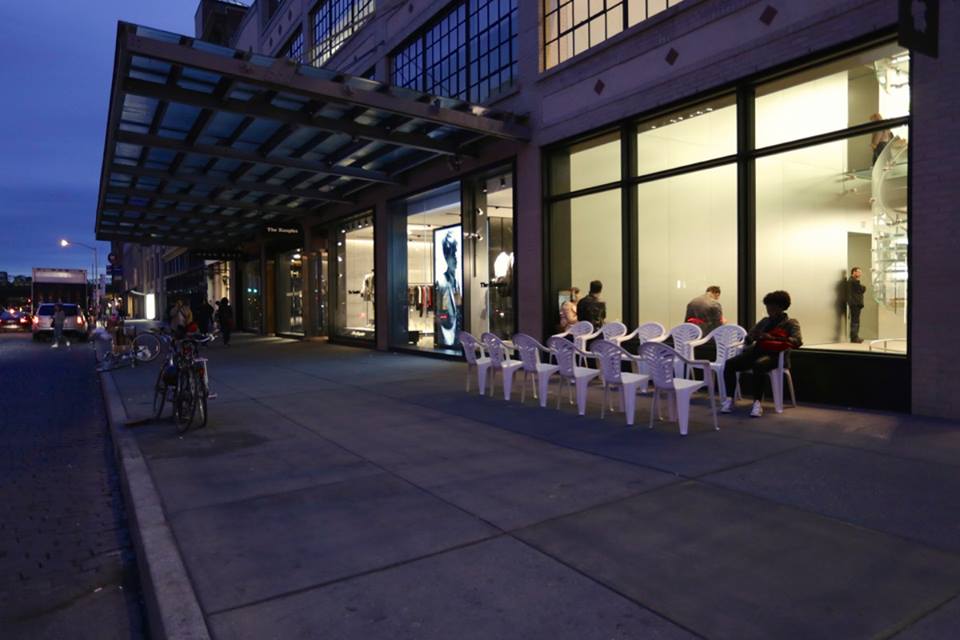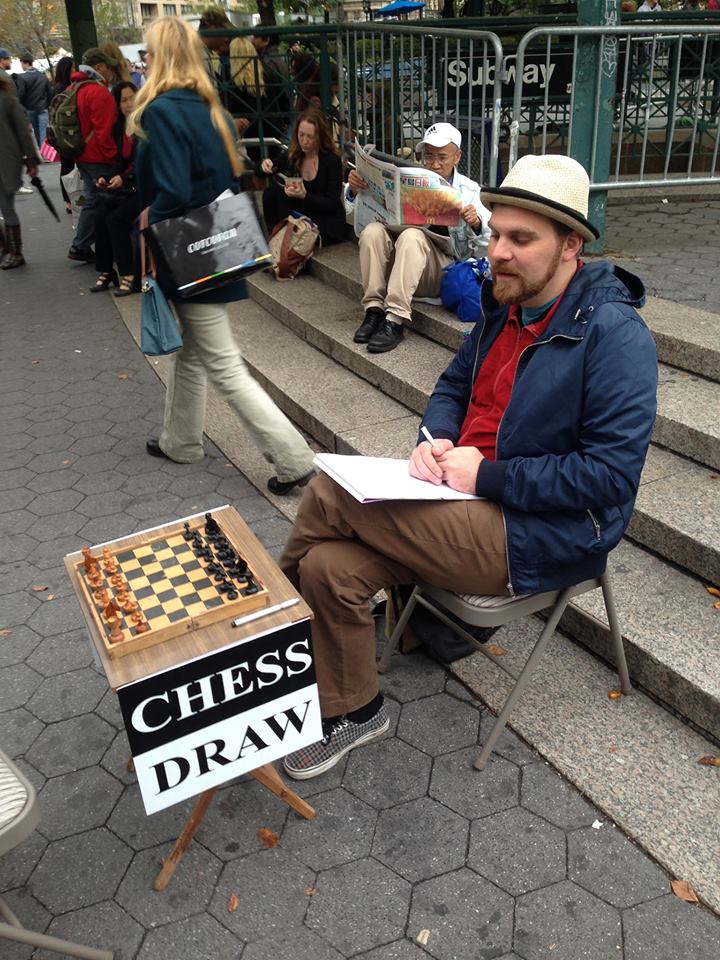By Dillon de Give
Becoming an observer on the street can make you vulnerable. Taking some time to make sense of your surroundings is a sure fire way to announce your candidacy for sucker-hood. It seems that nothing embodies naiveté quite so much as a tourist gawking up at a tall building. In that unfortunate moment we (New Yorkers) can see them, but they (tourists) can’t see us. And therefore we have the upper hand.
To become a New Yorker is to adopt a mindset of always knowing what you are doing. If not actually articulating this in speech (“So, what do you do?”) we are showing it in the way we move our bodies. I have learned through first hand experience that the simple act of walking quickly can give others the impression that you are on-task (the technique can be used in a wide variety of jobs).
All this goes to say that if you dare to appear in public space while in a state of not-knowing, seeking, or moving slowly you may be, to some extent, in danger. This state of vulnerability escalates when you are observing-with-intent-to-participate. Opening one’s senses up to the variety of interactions that could (and do) manifest on the street is opening the door to any number of transactional forms. It is exciting and scary.
I am here to look at Art in Odd Places, but the festival seems to be invisible. Scanning the street I begin to remember some of my first experiences in NYC. Thirteen years ago I stayed with a friend at 14th and A while looking for an apartment. In those first months, I looked at doorsteps, up into windows, and wondered about other people’s lives. I was ready to be pulled into some another person’s definition of reality– maybe even to follow a stranger. I began to the process of “wising up” after I was once fooled out of $40 by a con-artist posing as a plainclothes police person.
Ienke Kastelein, Have A Seat on the Sidewalk (Walking with Chairs). Photo courtesy of artist.
Not wanting to be the person who appears lost on the street, I step into a pizza shop to orient myself in a more private fashion. I buy a slice of pizza and think, “It might be nice to have some art now, while I am eating my pizza, perhaps in front of me on the wall.” Though sadly, it was not on the wall in front of me at that moment. I run into the Con-Ed plant on Ave C. (Didn’t 14th used to extend here?) A face is pressed against the window, staring out of entry booth. Staring at me? I wonder if I can go in, and try to decide if the face is telling me, “No”, or just looking past me into the distance. The person is wearing a red construction visibility vest. After a few moments, I realize it is a delivery guy waiting around to get OK’ed for entry himself.
I find Ienke Kastelein and sit with her for a few moments. Her piece Have A Seat on the Sidewalk (Walking with Chairs) is a real physical and psychological comfort for a drifting walker. The slow migration of these plastic chairs in formal arrangement along 14th street is decidedly not invisible. It can be seen from a distance. Sitting is one of the greatest pleasures of walking. Is it difficult to admit this?
Clark Stoeckley, Chess Draw. Photo courtesy of AiOP.
Approaching Union Square I begin to get a sense of the different social groups I had forgotten about congregating. The gothy teens here, the player guys there. I can feel eyes on me- calling to me?- because I am walking slowly and observing. I look like I am looking for someone, and I am. I am wondering if I can spot Clark Stoeckley’s Chess Draw among the chess players. I can’t. But the regular chess hustlers are interesting too. They are calling out “Chess player!” And I feel a bit of a pull because I used to play a lot of chess. In elementary school. That was another thing that happened when I first moved to NYC. I lost in street chess. At any rate, the gauntlet (that is the formation) extending off the subway station is fitting form for this environment.Games (monetary, spiritual, sexual, etc etc etc) are being played with great social craftsmanship. Perhaps artists will help us observe and experience something of them beyond winning and losing.



